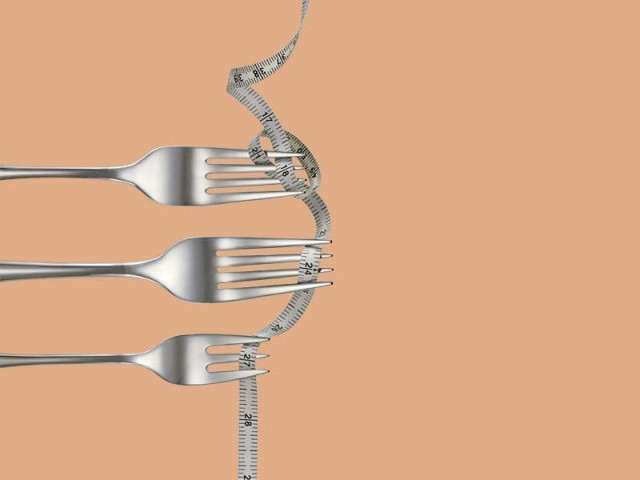The thinspiration theory
There may be a more emotional explanation behind eating disorders, other than the desire to be thin

Types of eating disorders
To understand the causes, one must be familiar with the different categories of eating disorders. According to the National Health Services (NHS) of the UK, eating disorders can most simply be defined as “abnormal attitudes towards food that cause someone to change their eating habits and behaviour.”
Under this banner, the most common of the disorders is anorexia nervosa wherein the patient tries to keep their weight as low as possible through excessive starving or exercise. The second type is known as bulimia which involves periods of binge eating followed by deliberate sickness or the use of laxatives to maintain weight. Both anorexia and bulimia are extreme cases which can prove fatal if not checked in time. Last but not the least is binge eating disorder (BED) which mentally convinces one to indulge in large amounts of food in a short space of time.
Causes
The causes of eating disorders are usually much more complex than wanting to look good. Sadia Mazhar, a clinical psychologist and rehabilitation coordinator at Karwan-e-Hayat, believes two of the leading reasons for eating disorders are over-involved parenting and depression. “In our part of the world in particular, parents often tend to impose their wishes on children without allowing them to develop their own values and sense of self,” she explains. Many mothers, for instance, unassumingly pressurise their daughters into looking good which, according to social norms, equates to being slender. “In order to show rejection to the mother, the child indulges in over-eating. Once he/she realises the weight gain, he/she starts vomitting intentionally or starving himself/herself,” explains Sadia. Hence, girls are much more vulnerable to eating disorders than their male counterparts, resulting from poor mother-daughter relationships.
On the other end of the spectrum lies a position paper released by The Academy of Eating Disorders (AED) that clarifies the role of the family in the occurrence of eating disorders. The paper points out that there is no data to support the theory that anorexia or bulimia are caused by certain family dynamics or parenting styles. Alternatively, there is strong evidence that family-based treatment for younger patients, implemented early on in the illness, actually prompts positive results and improvements in conjunction with professional guidance. While parents and families are not to blame, they can play a role in helping kids establish a positive or negative body image.
As far as genetics is concerned, Sadia informs that research on the matter is still very limited. The answers remain multi-factorial and may intersect differently for each person. For instance, in relation to anorexia, Sadia explains that low self-image is the key motivating factor behind starvation. “Patients stop eating or starve themselves for public acceptance or even self-acceptance,” she says. “In the case of BED, however, excessive influence from parents can be one of the reasons why the person starts binge eating, as part of a coping mechanism.”
Cure
Individuals with eating disorders must learn coping skills to tolerate negative experiences. If behaviours such as starvation, binging and excessive exercise develop in response to emotional pain, low self-esteem, anxiety, depression, stress or trauma, then one must address these issues.
But instead of resorting to anti-depressants, Sadia suggests incorporating a more holistic approach which includes psychological treatment — family therapy in particular. The family plays an integral part in the socialisation of the person. However, she admits there is little acceptance from the family especially in Pakistan. “Over-expectations from parents is a big factor. I think the message should be sent to parents before the children. Instead of teaching children healthy coping mechanisms, defence mechanisms have greatly increased. Since parents are defending themselves, the child also starts defending himself/herself,” she explains. “Parents forget to focus on the good that the child is doing. They tend to criticise more, which reduces the child’s self-esteem to a great extent,” she adds. Her advice for parents is to try and be more accommodating of their child’s behaviour.
Sadia further suggests that the underlying problem causing the individual to have abnormal eating patterns needs to be addressed first and then the disorder. She recalls the example of one of her patients who had been dealing with anorexia for nine years before she came to Sadia. “The woman was only taking medicines for physical disorder and hence, not gaining any weight. It was only after I provided her psychological treatment did she start recovering.” Therefore, by being mindful about the real causes of emotional imbalances and getting professional help, we can help those suffering from this crippling problem.
Komal Anwar is a subeditor at The Express Tribune magazine desk. She tweets @Komal1201
Published in The Express Tribune, Ms T, January 3rd, 2016.



















COMMENTS
Comments are moderated and generally will be posted if they are on-topic and not abusive.
For more information, please see our Comments FAQ